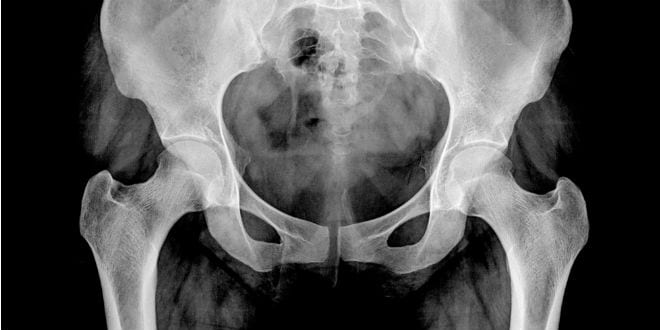Medical diagnostics were revolutionized in the last few decades by imaging technologies that allow physicians to look inside your body to find out what is wrong without having to open you up.
While ordinary x-rays, which were introduced over a century ago, remain with us to diagnose bone fractures, ultrasound, computerized tomography (CT) scans and magnetic resonance imaging (MRI) have been joined by nuclear medicine imaging, including positron-emission tomography (PET). Each technology has different uses and benefits.
Nuclear and accelerator physics have had a strong impact on the diagnostics and treatment of cancers.
Now, BGN Technologies, the technology transfer company of Ben-Gurion University (BGU) of the Negev in Beersheba, has introduced a novel method for producing radioisotopes for nuclear medicine used in imaging. The new technique makes possible simultaneous production of molybdenum-99 and other isotopes without the need for highly enriched, weapons-grade uranium. The method will be used in nuclear medicine and medical imaging technologies such as CT scan and PET-CT.
Developed by Dr. Alexander Tsechanski from BGU’s department of nuclear engineering, the new technique makes unnecessary the need for highly enriched uranium and a nuclear reactor. Nuclear medicine often necessitates the use of technetium-99m (Tc-99m) as the isotope for imaging, an unstable technetium isotope with an only a six-hour half-life; this requires onsite production.
But to produce it in an economically efficient way, it has demanded the use of it weapons-grade, highly enriched uranium and a nuclear reactor to generate molybdenum-99 (Mo-99), which decays into technetium-99m (Tc-99m).
The new invention uses the naturally occurring and stable molybdenum-100 (Mo-100) isotope and a linear electron accelerator to generate Mo-99 and Tc-99m. This process can also simultaneously generate other short-lived radioisotopes such as F-18, O-15, N-13, and C-11 as byproducts for use in PET scans.
Zafrir Levy, a senior vice president for business development, exact sciences, and engineering at BGN Technologies, explained: “Technetium-99m is a metastable [stable] nuclear isomer of technetium-99 that is used in tens of millions of medical diagnostic procedures annually, making it the most commonly used medical radioisotope. The need for uranium and a nuclear reactor to produce this radioisotope is creating a shortage of this important substance. Tsechanski’s innovation offers a more feasible, cost-effective method, using cheaper electron accelerators, for generating Mo99/Tc-99m. We are currently looking for partners for further developing and commercializing this important invention.”
BGN brings technological innovations from the lab to the market and promotes research collaborations and entrepreneurship among researchers and students. So far, it has set i[ over 100 startup companies in the fields of biotech, hi-tech and cleantech as well as initiating leading technology hubs, incubators, and accelerators. Over the past decade, it has focused on creating long-term partnerships with multinational corporations such as Deutsche Telekom, Dell-EMC, IBM, PayPal, and Bayer, securing value and growth for Ben-Gurion University as well as for the Negev region.




